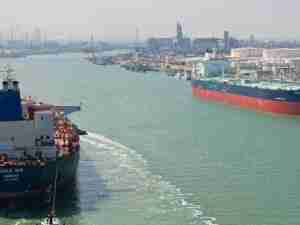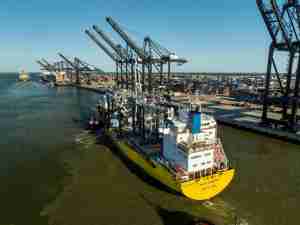Khalifa Port is owned by the Abu Dhabi Ports Company (ADPC) and operated by Abu Dhabi Terminals (ADT). ADPC and ADT are pleased with the commercial progress of the new port. In a rare occurrence with large infrastructure developments of this kind, Martijn Van de Linde, CEO of ADT, commented: “ADT is pleased to announce that we are two months ahead of schedule for completing the transitioning of all container traffic from Mina Zayed to the Khalifa Port Container Terminal. We had initially anticipated completion of the process by the end of Q1 2013, but now we are projecting completion in January 2013.”
A supplier of automated container yard systems is judged both on the performance of its technology and its ability to deliver and commission the equipment within the flow of the total project. “I am proud of our ability to consistently deliver automated container handling systems on time, with high quality,” says Jussi Suhonen, General Manager, RMG Cranes, Konecranes. “Our growing list of automation references speaks for itself. With each delivery, we gain strength and expertise. This extension order granted to us by ADPC is proof of their confidence in us.”
The 12 ASCs in the extension order are identical to the 30 ASCs delivered in the first phase. They have a lifting capacity of 40 tons, stacking one-over-five containers high and nine wide. They are equipped with automation controls and Konecranes’ Active Load Control (ALC) system. ALC combines advanced sway control and horizontal fine positioning, providing very efficient container handling in the ASC yard, both automatically and remotely. This is especially true in the transfer areas and inside the stack, where placement tolerances are always present. The Konecranes ASCs will be interfaced with the Khalifa Port Terminal Operating System (TOS), delivered by Konecranes in the first phase of the container terminal construction.










